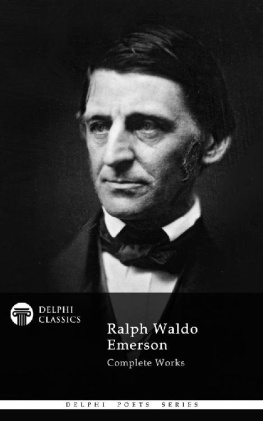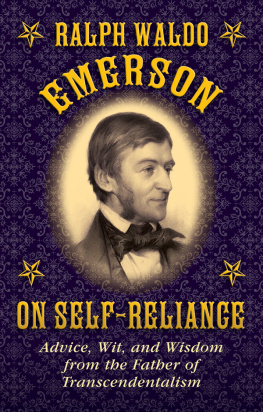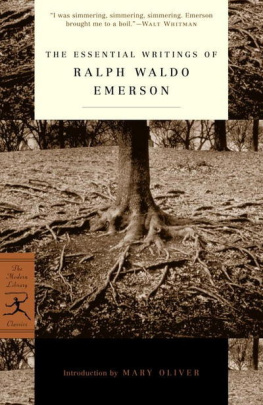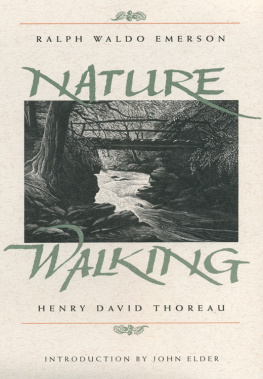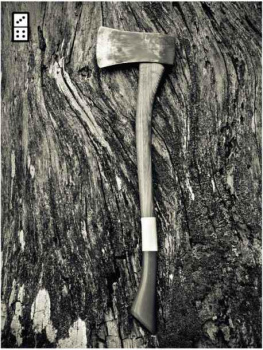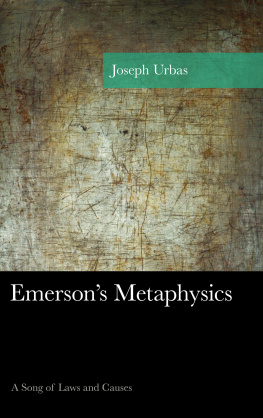
Ralph Waldo Emerson
(1803-1882)

Contents

Delphi Classics 2013
Version 1









Browse the entire series


Ralph Waldo Emerson
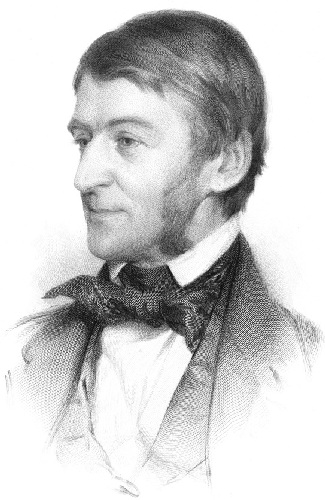
By Delphi Classics, 2013
COPYRIGHT
Ralph Waldo Emerson - Delphi Poets Series
First published in the United Kingdom in 2015 by Delphi Classics.
Delphi Classics, 2015.
All rights reserved. No part of this publication may be reproduced, stored in a retrieval system, or transmitted, in any form or by any means, without the prior permission in writing of the publisher, nor be otherwise circulated in any form other than that in which it is published.
Delphi Classics
is an imprint of
Delphi Publishing Ltd
Hastings, East Sussex
United Kingdom
Contact: sales@delphiclassics.com
www.delphiclassics.com
NOTE

When reading poetry on an eReader, it is advisable to use a small font size, which will allow the lines of poetry to display correctly.
The Poetry of Ralph Waldo Emerson
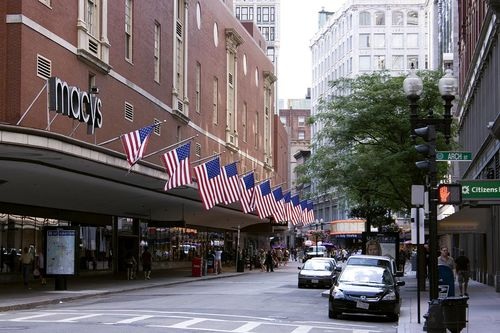
Summer Street, Boston, Massachusetts the site of Emersons birthplace
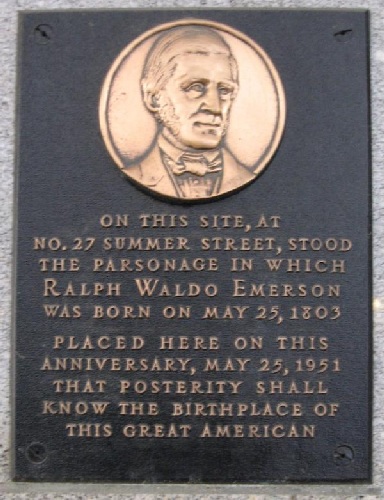
A plaque commemorating the authors birthplace
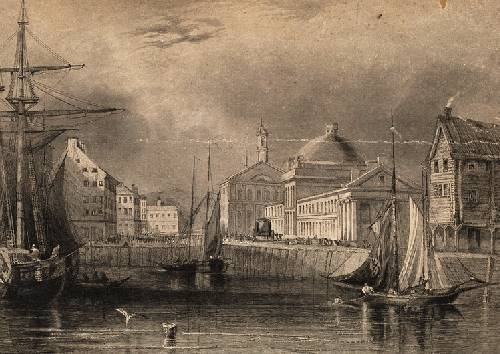
A scene of central Boston, 1803 the year Emerson was born
Brief Introduction: Ralph Waldo Emerson

Ralph Waldo Emerson was born in Boston, Massachusetts, on May 25, 1803 and he was the son of Ruth Haskins and the Rev. William Emerson, a Unitarian minister. He was the second of five sons who survived into adulthood and his father died from stomach cancer on May 12, 1811, less than two weeks before the poets eighth birthday. Raised by his mother, with the help of several other women in the family, Emerson was particularly inspired by his aunt Mary Moody Emerson, who lived with the family off and on, maintaining a constant correspondence with Emerson until her death in 1863. He later referred to his Aunt Mary as his earliest and best teacher, and a spirited and original genius in her own right.
Emersons formal schooling began at the Boston Latin School in 1812 when he was nine and in October 1817, aged 14, Emerson went to Harvard College and was appointed freshman messenger for the president a position that meant he had to fetch misbehaving students and send messages to faculty. Midway through his junior year, Emerson began keeping a list of books he had read and started a journal in a series of notebooks that would be later called Wide World . During this uncertain time, he took various outside jobs to cover his school expenses, including working as a waiter for the Junior Commons and as an occasional teacher with his uncle Samuel in Waltham, Massachusetts. Serving as Class Poet, he presented an original poem on Harvards Class Day, a month before his official graduation on August 29, 1821, when he was 18 years old. Emerson was not conspicuous as a student and graduated in the exact middle of his class of 59 peers.
In 1826, suffering from poor health, Emerson decided to seek out warmer climates. He travelled to St. Augustine, Florida, where he took long walks on the beach and began writing poetry in earnest for the first time. While in St. Augustine, he made the acquaintance of Prince Achille Murat, who was the nephew of Napoleon Bonaparte. Only two years Emersons senior, they became close friends and enjoyed sharing one anothers company, engaging in enlightening discussions on religion, society, philosophy, and government; Emerson considered Murat an important influence in his intellectual education.
After completing his education at Harvard, Emerson assisted his brother William in a school for young women that was established in their mothers house, after he had successfully created his own school in Chelmsford, Massachusetts. When William went to Gttingen to study divinity, Emerson took charge of the school all by himself. Over the next several years, he made his living as a schoolmaster, before deciding to study at Harvard Divinity School.
Emerson met his first wife, Ellen Louisa Tucker, in Concord, New Hampshire on Christmas Day, 1827, and married her when she was 18. The couple moved to Boston, with Emersons mother Ruth moving with them to help take care of Ellen, who was already sick with tuberculosis. Less than two years later, she died at the age of 20 on February 8, 1831, after uttering her last words: I have not forgotten the peace and joy. Emerson was heavily affected by her loss, visiting her grave in Roxbury daily. In a journal entry dated March 29, 1832, he wrote, I visited Ellens tomb & opened the coffin.
Having completed his divinity studies, Emerson was invited by Bostons Second Church to serve as junior pastor and he was ordained on January 11, 1829. His initial salary was $1,200 a year, increasing to $1,400 in July, but with his church role he took on other responsibilities, including the role of chaplain to the Massachusetts legislature and being a member of the Boston school committee. During this period, following the death of his wife, he began to doubt his beliefs, disagreeing with the churchs methods. Writing in his journal in June 1832, he records: I have sometimes thought that, in order to be a good minister, it was necessary to leave the ministry. The profession is antiquated. In an altered age, we worship in the dead forms of our forefathers. His disagreements with church officials over the administration of the Communion service and misgivings about public prayer eventually led to his resignation in 1832. As he wrote, This mode of commemorating Christ is not suitable to me. That is reason enough why I should abandon it.
Next page
